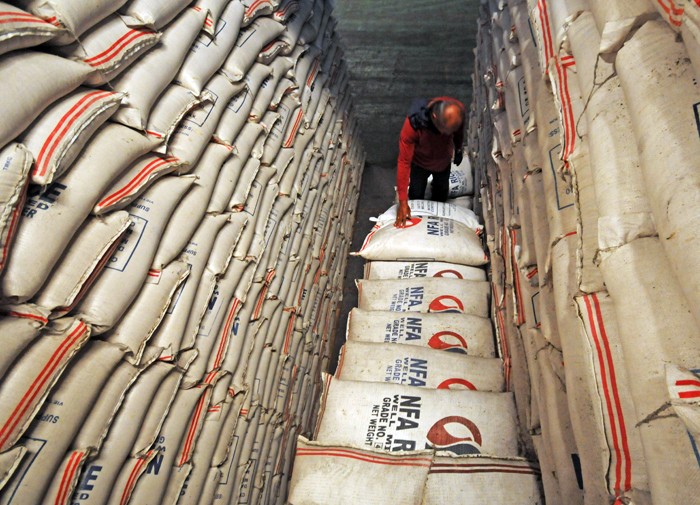- Imported Rice Not Good for Consumption, Says FG
The Federal Government has raised the alarm that rice being imported into the country is not good for human consumption.
The Minister of Information and Culture, Alhaji Lai Mohammed, during a media briefing in Oro, Ifelodun Local Government Area of Kwara State on Tuesday, also said the imported rice was meant to feed cattle in their countries of origin.
According to him, imported rice is cheaper than locally produced ones, because it is being dumped in Nigeria.
He advised Nigerians to consume locally produced rice, which he noted was healthy and fresh.
Mohammed stated that the Federal Government was making concerted efforts to continue to support rice farmers in the country to boost their production.
He said, “People may say that imported rice is still cheaper. Oh yes, for three reasons: One, the ones being imported is rice that is no longer fit for human consumption. They are dumping it here. The rice is sub-standard. They even give the rice on credit for people to buy, because they know that the rice they are exporting should be given to cattle. That is why we have embarked on the campaign in the mass media that Nigerians should buy made in Nigeria rice.
“The government is making efforts to ensure that we subsidise our rice so that it will become cheaper. We are very confident that in the next couple of years, we would have achieved self-sufficiency in rice as in other products. It will take about the next one and half years for Nigeria to be self-sufficient in rice. What we have today is a far cry from what we had before. In 2015, we were doing about three million metric tonnes of rice; but today, we are doing about five million metric tonnes of rice.”
Mohammed added, “Why imported rice is cheaper is that it is not fit for consumption. It is being dumped. It is rice that has been kept in silos for years that is being unleashed on Nigerians; but because it is not coming through the proper channels, it is being smuggled.
“Many of the imported brands of rice will not pass the NAFDAC test; that is why we have continued to campaign that Nigerians should patronise Nigerian rice, because it is the only healthy rice. No Nigerian rice is older than one year.”
He also stated, “But you have rice coming from other countries that has been produced for five or six years, which normally they will feed to their cattle in their countries, which they are feeding us with today. But gradually, I can assure you that with the Anchor Borrowers’ Programme, more support will be given to our farmers in the next couple of years; not only that we are going to be self-sufficient in rice production, it will become cheaper.
“When we came in, there were five million rice farmers. Today, we have in excess of 11 million rice farmers. Our rice import has been cut by over 80 per cent. These didn’t happen by accident. They were as a result of our Anchor Borrowers’ Programme. There are more millionaire farmers today than at any other time in the history of our nation. Today, Nigeria is closer to achieving self-sufficiency in rice than at any other time in the history of our country.”
The minister said that grazing reserves would greatly reduce incessant clashes between farmers and herders, adding that they would make the cows to be bigger, produce more milk and increase the profit of the herders.
He, however, noted that the Federal Government under President Muhammadu Buhari would not impose grazing reserves on the states, adding that some state governors had embraced grazing reserves for their states and said he was hopeful that many others would appreciate the advantages of grazing reserves and accept the implementation.
Mohammed said 2019 would be a year for Nigerians to make a critical decision to choose between retrogression and progress.
He stated that the Buhari’s administration inherited a $23.7bn foreign reserves, adding that currently, Nigeria had about N47bn in foreign reserves, and claimed that inflation had consistently reduced.

 Naira3 weeks ago
Naira3 weeks ago
 News4 weeks ago
News4 weeks ago
 Naira4 weeks ago
Naira4 weeks ago
 Naira3 weeks ago
Naira3 weeks ago
 Travel3 weeks ago
Travel3 weeks ago
 Jobs4 weeks ago
Jobs4 weeks ago
 Naira3 weeks ago
Naira3 weeks ago
 Investment4 weeks ago
Investment4 weeks ago






























